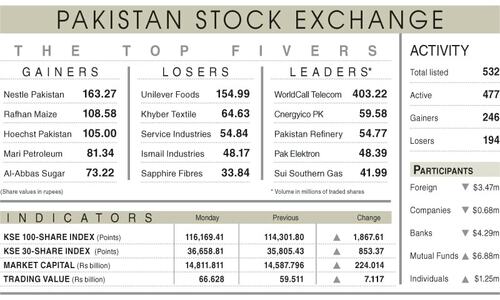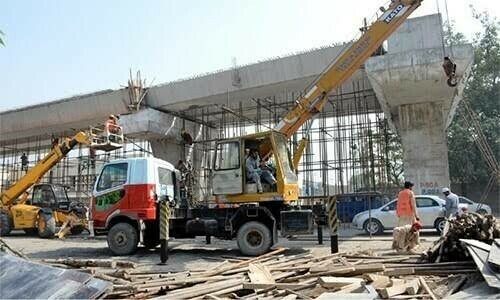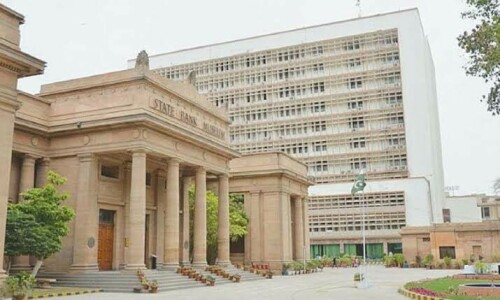KARACHI, Aug 21: The rupee fell by 2.1 per cent against the US dollar on Thursday to touch as low as Rs76.30, said market sources.
Fear of growing dispute in the coalition government over restoration of judges was considered as the catalyst for depressing the market sentiment, said a currency dealer.
The currency dealer said that he booked dollar at Rs76.75 for Friday. The inter-bank market had witnessed a good recovery of the rupee after the resignation of President Pervez Musharraf on Monday.
What would happen if the judges were restored was not clear to the currency dealers, but they said the real problem was less inflows and higher outflows of dollars from the country.
The State Bank of Pakistan on Thursday issued latest figures reflecting the poor position of foreign exchange reserves which fell to $9.57 billion, an outflow of $350 million in the week ended on August 16.
The fast erosion of reserves puts a psychological pressure on the market and a rush for early buying of dollars by importers begins.
So far all claims and efforts to bring in dollars looked failed. The government claimed that $3.5 billion would be arranged soon.
At the same time, the government has been making it public that an effort was underway to hit a deal with Saudi Arabia for import of oil worth $5.9 billion on deferred payment. The effort could not be materialised so far.
“The actual position is that the reserves held by the SBP, meant for government use, fell to $6.262 billion,” said a currency dealer.
He said these poor reserves have shattered the confidence of importers putting them in race to get maximum ‘before it is too late.’
Analysts see requirement of huge borrowing by the government in coming weeks.
“Not only the huge borrowing is needed but the rate of borrowing will be much higher as the country’s risk is rising with depressing information of slow economic growth,” said the analyst.
He was of the view that rate of borrowing will be higher with passage of each day. Further delay in borrowing without any quick arrangement of dollars could force the government to go for short-term borrowing at commercial rate.
During 1990s, the governments had been involved in short-term borrowing at a rate not less than 12 per cent while the prevailing rate was 5 to 6 per cent.
Debt servicing, outflow of foreign investment from shares market and reverse remittances as profit and dividends of foreign companies operating in Pakistan have put enormous pressure on poor foreign exchange reserves.
Currency experts see serious problem of foreign exchange in a couple of months but it was more haunting for them that nothing was being done at the highest governmental level to avoid the possible ‘default.’













































Dear visitor, the comments section is undergoing an overhaul and will return soon.